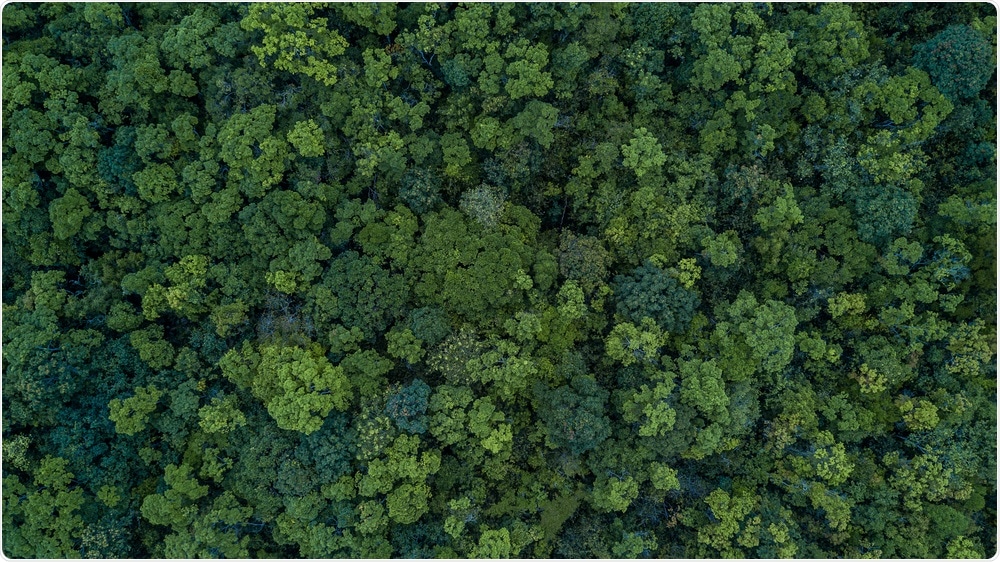AZoLifeSciences speaks to Professor William Anderegg about his latest research into climate change and how it is affecting the allergy season.
What inspired your research into climate change and its impact on the world?
I grew up spending a lot of time outdoors hiking, camping, and fishing in the Colorado Rocky Mountains. When I was starting out as a scientist, I came back to many of those forests and saw that many of them were dying en masse.
Many of those forests looked more like moonscapes than forests. This profoundly affected me – the land had changed so visibly and viscerally in my lifetime. That experience prompted a huge range of questions and has inspired a lot of our subsequent research.
Why Are Our Forests Dying? | Unseen Effects of Climate Change
A lot of your research focuses on forests that are dying or stressed. How can you determine the stress levels of trees?
The most direct way is to look at how well a tree can transport water. Similar to taking the blood pressure in a human, we can look at how much tension the water inside a tree is under and how functional trees’ water transport pipes are.
This is fairly time-intensive, though, so there are proxies that one can look at from airplanes and satellites that are less accurate but let scientists look at forest stress over much broader spatial scales.
What impact has climate change already had on forests?
Climate change is already influencing forest growth and mortality across the world. In the US, we have seen climate change impacts on wildfires, widespread drought-driven tree mortality, and insect outbreaks, particularly in the western US.

Forest. Image Credit: Avigator Fortuner/Shutterstock.com
Why is pollen such an important contributing factor to allergies?
In millions of people across the US, pollen triggers substantial respiratory health problems, including asthma and allergies.
Can you describe how you carried out your latest research into allergies and climate change?
We analyzed pollen data from 60 pollen stations collected in cities around the US and Canada. We looked at long-term pollen trends from 1990-2018 and the links between pollen trends and recent changes in temperature, precipitation, and atmospheric carbon dioxide levels.
We found that temperature was a major determinant of pollen season start date, length, and the amount of pollen in the air. Finally, we used large-scale computer climate models to look at how much of these pollen trends can be attributed to human-caused global warming.
What did you discover?
We found that pollen seasons are starting earlier and have higher amounts of pollen in the air. The largest pollen increases were in the southeast and midwestern US. Human-caused climate change was the dominant driver in pollen season length and played a more moderate role in pollen levels.
Do you believe that your research will help us to further understand the varying impacts of climate change on people’s health?
Yes, this research is critical in linking climate change to changing pollen seasons. Pollen has huge impacts on respiratory health, including asthma, hospital admissions, and allergies, and thus we need to be able to understand and predict pollen seasons and concentrations in a changing climate.
This study is a start towards that aim.

Pollen. Image Credit: Ralf Geithe/Shutterstock.com
What could be done to help allergy sufferers deal with increasing pollen seasons?
There are lots of potential options here, including tackling and reducing climate change, minimizing pollen exposure and medications. Many of the small-scale actions vary substantially from person to person, so it is best to talk to your allergist for concrete advice.
What are the next steps in your research?
We want to understand which plant species are more sensitive to climate and are driving the trends in pollen seasons and amounts. We would also like to connect the pollen trends to respiratory health impacts more directly in future work.
Where can readers find more information?
http://www.anderegglab.net/
https://www.pnas.org/content/118/7/e2013284118
About Professor William Anderegg
William Anderegg received a bachelor's and Ph.D. from Stanford University and did an NOAA Climate & Global Change Postdoctoral Fellowship at Princeton University. He has been an Assistant Professor in the School of Biological Sciences at the University of Utah since 2016.
He has received the Early Career Fellow award from the Ecological Society of America and a Packard Fellowship in Science and Engineering from the David and Lucille Packard Foundation.